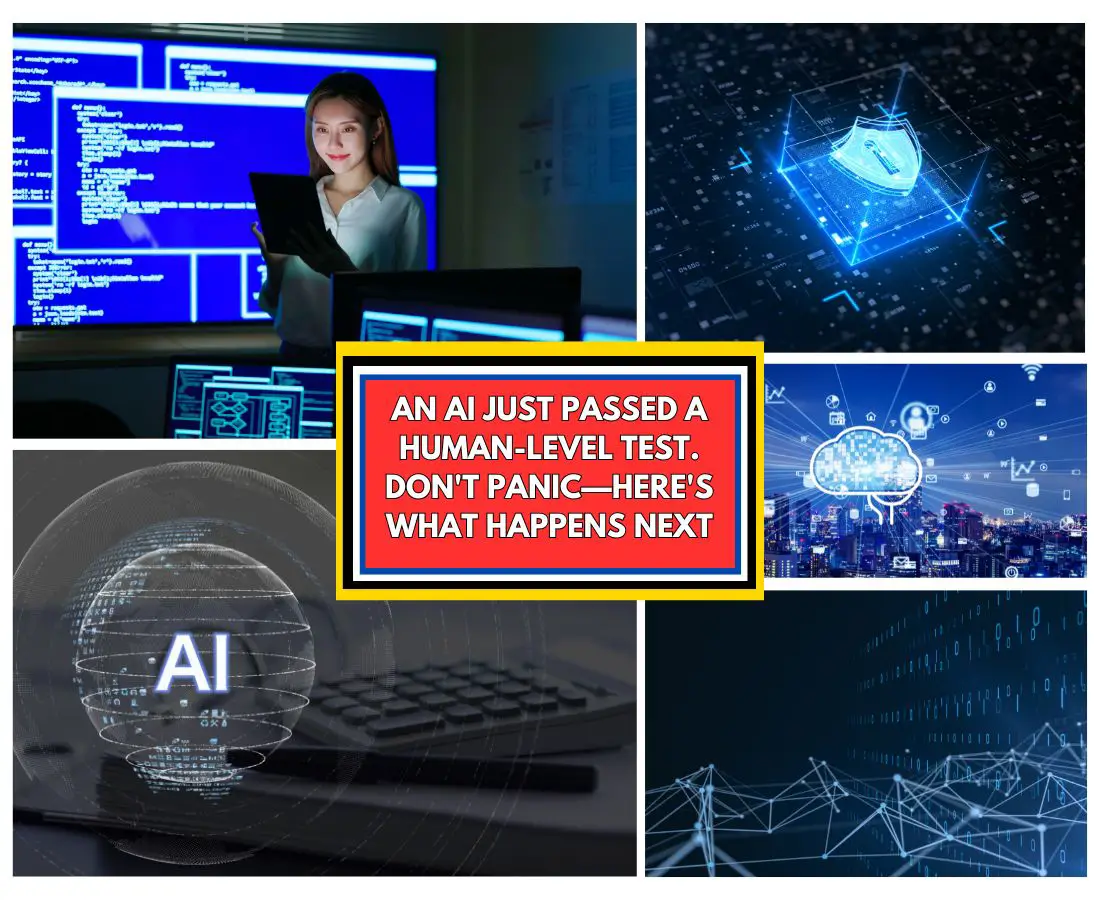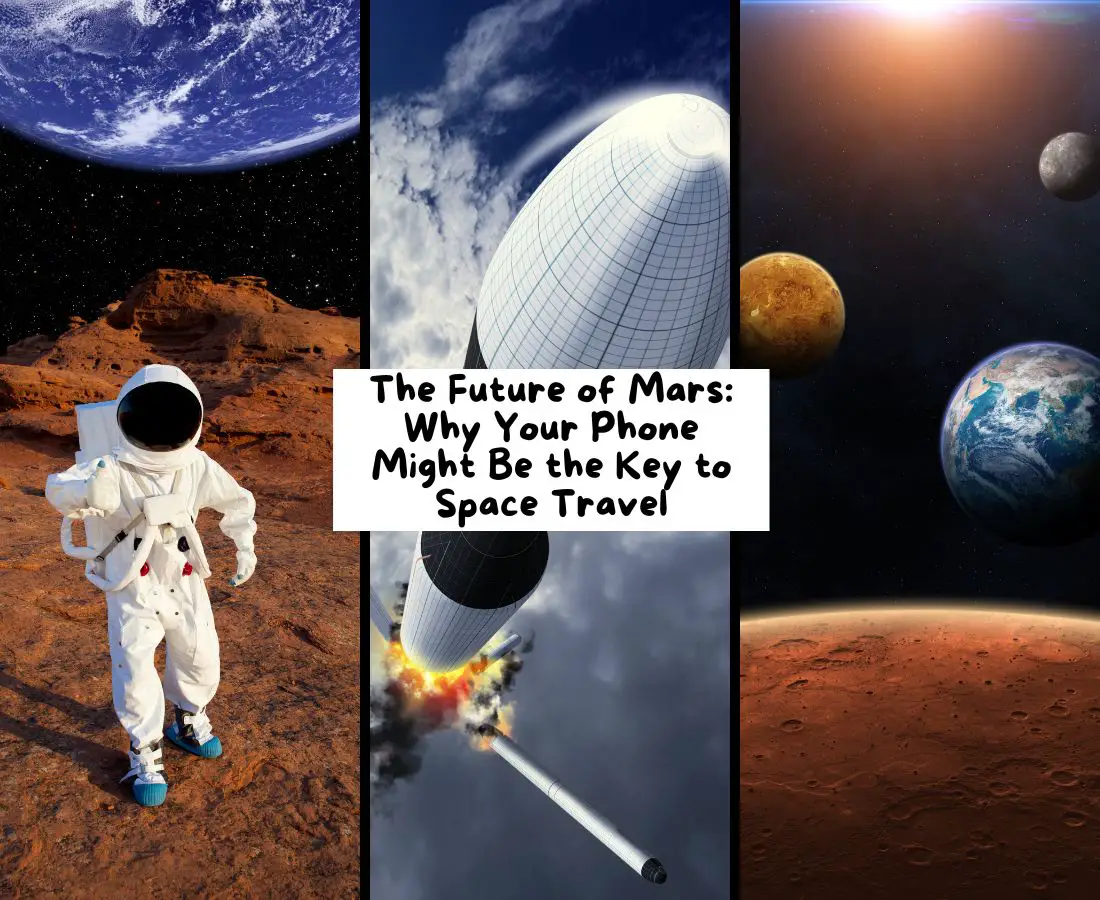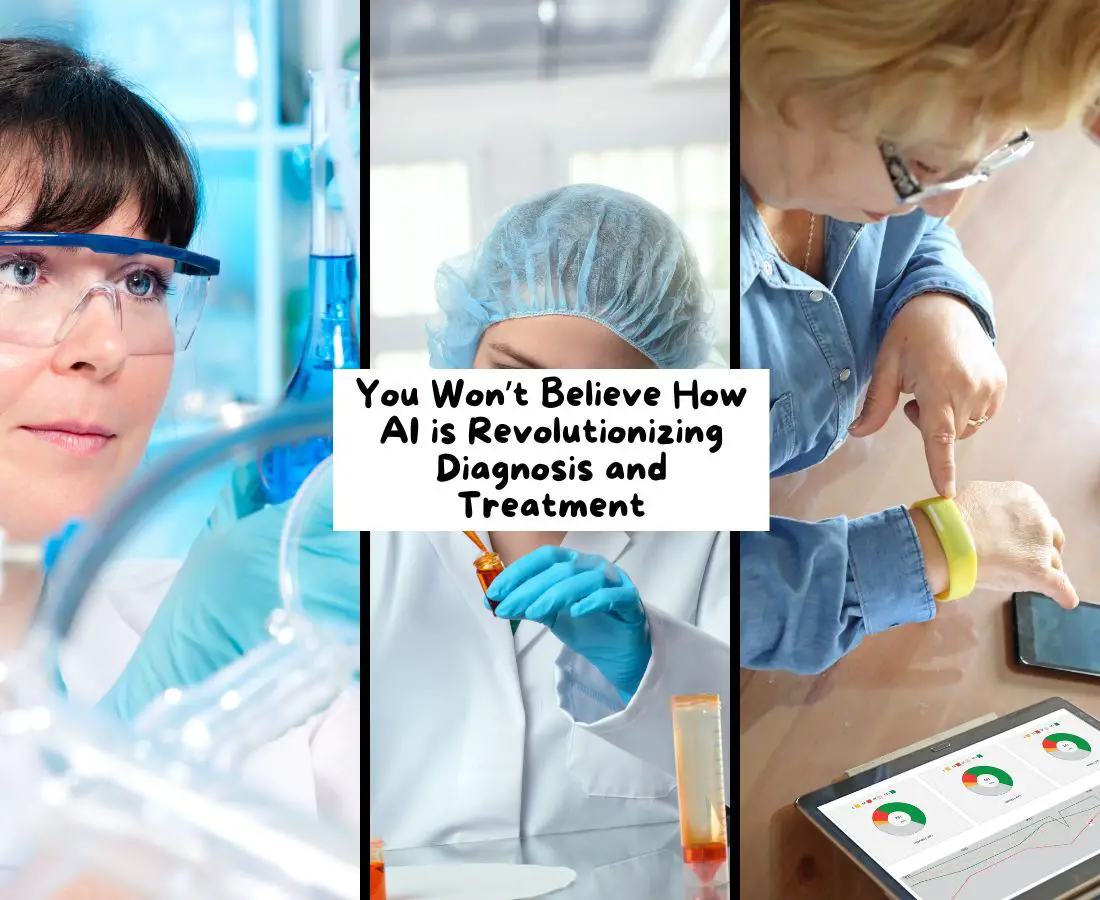
An AI system has now reached human-level intelligence on a test that’s supposed to measure how “smart” something is across a bunch of different topics.
I mean, it’s not just about math or puzzles anymore.
This AI is kind of like… well, like you, but with a super fast brain.
So, what does this really mean for us, and more importantly, how will this change the world as we know it?
Let’s break it down.
What Exactly Is This “Human-Level” Intelligence?
Okay, first things first, you need to understand what “human-level” intelligence means.
It’s not just about an AI that can beat you at chess.
We’re talking about a machine that can think in ways that are similar to how you and I do.
It can understand different topics, make decisions, and even think critically.
Imagine a computer that can have a conversation with you, solve problems, and make its own choices.
This site contains affiliate links, please read our disclosure for more information. The content on this website was created with the help of AI.
Sounds pretty wild, right? But that’s exactly what’s happening here.
And no, this isn’t some sci-fi movie. It’s real.
The Test That Made AI Reach Human-Level Intelligence
Now, you’re probably wondering, “What test did they use?”
It’s called the general intelligence test, or sometimes the IQ test for AI.
This test is a way of seeing if an AI can solve problems and understand things across many different areas, not just one.
Before now, most AI systems were good at one thing—like playing games or sorting pictures.
But this test shows that an AI can now tackle a bunch of different things.
Think of it like this: It’s the difference between an AI that can play a video game and one that could learn how to write a book or even help solve real-world problems like climate change.
Why Should You Care About This?
You might be thinking, “Cool, but how does this change my life?”
Here’s the thing: AI is everywhere now.
From your smartphone to the apps you use every day, it’s already in your world.
And human-level AI could take that to the next level.
We’re talking about machines that can help doctors with diagnoses, improve education, and even save time in every industry.
It’s not just about robots taking over. It’s about using AI to make our lives better.
So yes, you should care. Trust me.
What Happens Now?
You might be asking, “Okay, but what’s next? What happens now that AI has reached this level?”
Well, we’re in a new phase of tech development.
This doesn’t mean the AI is perfect.
It’s not like we’re going to see a robot walking around tomorrow.
But it does mean that we’re on the brink of huge advancements.
Think of it as a baby step to an entirely new world of possibilities.
AI could soon be part of everything, from the way we work to how we solve global challenges.
Is This the Future We’ve Been Waiting For?
So, now that you know what’s happening, let’s talk about the future.
It’s easy to think that AI is going to be a scary thing.
But honestly, the future is a little more exciting than it is terrifying.
With human-level AI, we might be able to fix problems faster than ever.
Imagine AI working with doctors to cure diseases, or researchers solving climate problems quicker.
It’s not just a science experiment anymore. It’s real-world, and it’s happening now.
If you’ve ever wanted to see a real change in the world, this is it.
And you’re here to witness it.
What Could This Mean for Jobs?
Okay, I know you’re probably thinking, “What about my job? Is an AI going to take it?”
And fair question! Let’s talk about it.
The truth is, AI isn’t just going to steal jobs; it’s going to change the way we work.
We’re talking about AI helping you with the boring stuff—like organizing data, answering emails, and doing repetitive tasks.
That means you can focus on the creative, fun, and challenging parts of your job instead.
In some fields, this might mean new opportunities where humans and AI work together to create something amazing.
So, it’s not about humans vs. robots.
It’s about humans and robots working side by side.
Will AI Take Over Everything?
If you’ve seen movies where AI turns evil and takes over the world, you’re probably wondering if that’s going to happen here.
Relax. I get the fear, but that’s not the reality (yet).
AI might be smart, but it’s not the boss.
We’re still in control of how AI is used and how it evolves.
The goal isn’t to make AI the ruler of the world—it’s about using it as a tool to help humans achieve more.
Plus, we have ethical guidelines and laws in place to make sure AI is used responsibly.
We’re not going to let a machine decide what’s best for us.
So, while it’s powerful, it’s not going to take over everything anytime soon.
What Can You Do With This Info?
Now that you know what’s going on, you might be asking, “What’s next for me? How do I make the most of this AI revolution?”
Here’s the thing: staying informed is your best advantage.
By understanding how AI is shaping the world, you can stay ahead of the curve.
Whether it’s in your career, your personal life, or even just knowing what’s going on in the tech world, staying in the loop is key.
Here are a few things you can do:
- Learn more about AI: There are tons of free resources online to help you get up to speed.
- Start using AI tools: Try apps that use AI to make your life easier—whether it’s a calendar, a writing assistant, or even a health tracker.
- Get involved in the conversation: As AI changes the world, your voice matters. Stay informed and be part of shaping the future.
How Can This AI Impact Daily Life?
Alright, let’s talk about how this all impacts your day-to-day life.
The big thing about this AI reaching human-level intelligence is that it means these kinds of smart systems could soon be part of everything.
Let’s say you’re shopping online.
AI could help you pick out things you might like based on your preferences and past purchases.
What about home management? AI could help you run your home by controlling lights, temperature, and even ordering groceries when you’re running low.
On a bigger scale, imagine AI helping out in healthcare by providing doctors with faster diagnoses or offering personalized health advice.
And don’t even get me started on the environment—AI could play a big role in addressing climate change by helping to analyze data and predict future trends.
So, yeah, this isn’t just about robots.
It’s about improving lives—yours, mine, and everyone else’s.
And that’s a future I’m excited to be a part of.
What is the AI Test for Intelligence?
The AI test for intelligence typically refers to assessments that measure an AI system’s ability to perform tasks that require general reasoning, understanding, and learning—much like human intelligence. One of the most well-known tests is the Turing Test, created by British mathematician and computer scientist Alan Turing. In the Turing Test, an AI system is evaluated based on how well it can mimic human-like responses in a conversation. If a human evaluator cannot distinguish between responses from a machine and a human, the AI is said to have passed the test.
However, in recent years, general intelligence tests for AI (also called AGI tests) are used to evaluate whether an AI system can handle a wide range of tasks, adapt to new challenges, and solve problems like humans. These tests focus on measuring the system’s ability to reason, plan, learn, understand complex ideas, and apply knowledge in various situations.
What is the Human Level of AI?
When people refer to “human-level AI,” they are describing an AI system that can perform tasks with the same intellectual abilities as a human. This includes tasks like understanding natural language, making decisions, solving problems, and learning from experience.
A human-level AI (or Artificial General Intelligence, AGI) is not limited to narrow tasks (like playing chess or identifying images) but can adapt to any intellectual task that a human can do. In other words, it has the flexibility and reasoning abilities to perform a broad range of cognitive tasks with a level of competence similar to that of a human.
What is Human Intelligence in AI?
Human intelligence in AI refers to the goal of making AI systems capable of replicating the complex cognitive functions humans perform. These include:
- Reasoning: Drawing conclusions from data or experience.
- Problem-solving: Finding solutions to novel or complex problems.
- Learning: Adapting and improving over time based on new experiences or information.
- Understanding: Comprehending complex situations and emotions.
- Creativity: Generating new ideas or solutions.
In AI research, human intelligence serves as the benchmark for developing systems that can think, learn, and adapt in ways similar to humans, ultimately striving for Artificial General Intelligence (AGI).
Which is the Famous Human Intelligence Test in AI?
The most famous human intelligence test used to assess AI is the Turing Test. Proposed by Alan Turing in 1950, this test evaluates a machine’s ability to exhibit intelligent behavior indistinguishable from that of a human. In the classic version of the test, a human evaluator interacts with both a machine and a human without knowing which is which. If the evaluator cannot reliably tell which is the machine, the machine is considered to have passed the Turing Test and demonstrated a level of human-like intelligence.
While the Turing Test is still widely recognized, modern approaches to AI testing are moving towards more comprehensive general intelligence assessments, such as the AI-Complete tests, which aim to measure a machine’s ability to solve a broad range of tasks. These tests go beyond just communication and include reasoning, learning, and decision-making skills.
Conclusion: The Future is Bright (and AI is Part of It)
I know, this stuff is a lot to take in.
But let me tell you, it’s one of those moments when you’ll look back and think, “Wow, I was there when it all started.”
AI has reached a point where it’s not just a tool; it’s becoming a partner in the way we live and work.
It’s up to us to steer this technology in the right direction and make sure it benefits everyone.
So yeah, buckle up.
The future’s coming, and AI is a big part of it.






